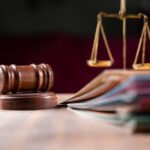By Reporters
Bauchi: Pharmarcists and other stakeholders in the North-East have called for more awareness campaign to combat circulation of counterfeit and falsified pharmaceuticals in the country.
The experts said the call was imperative to educate the people on the dangers of fake drugs and safeguard public health.
They spoke while responding to a survey by the News Agency of Nigeria (NAN) on circulation of fake drugs and chemicals in Bauchi, Damaturu, Dutse, Gombe, Maiduguri and Yola.
A pharmacist in Yobe, Mr Madu Ali said effective strategies were necessary to strengthen drug regulatory agencies to enable them to combat circulation of falsified drugs in the country.

He defined fake drug as any drug that do not contain active ingredients, but packaged to look like a genuine product.
The expert listed the effects of fake drugs to include disease progression, organ failure and prolong duration of treatment.
Ali, also the Head, Pharmaceutical Services, Specialists’ Hospital, Damaturu, said strengthening the agencies would enhance their operations to ensure that only genuine drugs were in circulation in the country.
“If you strengthen the drugs management agencies, you will improve their capabilities from mere physical inspection of drug colours to full-fledged laboratory investigation,” he said.
He said there was an urgent need to ban drug hawking and caution members of the public against patronising open drug markets.
Ali noted that although many suspected fake drugs were in circulation, the anomaly could only be confirmed by a formal research.

Recounting her ordeal; Mrs Josephine Audu, a victim of fake drugs in Gombe State, urged NAFDAC to intensify campaign to check circulation of counterfeit drugs and chemicals in the country.
Audu noted that fake drugs caused adverse side effects rather than providing remedy to diseases.
“I took a brand of Septrin tablet and developed skin rashes afterwards.
“I alongside six other females became ill and hospitalised after using the drug,” and urged relevant authorities to step up campaign to curb the menace.

To buttress the claim, the National Agency for Food and Drug Administration and Control (NAFDAC) in Borno has raised alarm over circulation of fake agricultural chemicals in the state.
NAFDAC’s State Coordinator, Jamil Audu said the Agency seized counterfeit agro chemicals in series of raids at markets in Maiduguri metropolis.
He said unsuspecting farmers used the chemicals for crop production and preservation in spite of associated health risks and environmental hazards.
“The discoveries are alarming as some people engaged in bad practices.
“The Agency is conducting awareness campaign as one of the veritable regulatory mechanisms to safeguard public health.
“We are sensitising marketers, herbal medicine practitioners, water and food processors to effectively regulate their activities,” he said.
He said the Agency had scaled up sensitisation activities through Consumer Safety Clubs in schools to educate them on how to detect unregistered products.

The campaign, he said, was part of strategies adopted by the Agency to protect the people against unwholesome food, falsified drugs and harmful cosmetics.
According to him, the siezed items will be destroy after laboratory analysis.
In the same vein; Mathias Buba, a Civil Society Organisation (CSO) activist, attributed high cases of treatment failure to consumption of fake drugs.
He said falsified drugs are deadly resulting to organs damage and worsen chronic diseases such as renal failure and liver cirrhosis.
Buba, therefore, advocated practical measures to regulate drugs import, and urged indigenous pharmaceuticals to adopt measures to make their products accessible.
In Adamawa; the Pharmaceutical Society of Nigeria (PSN), said it had seized and destroyed counterfeit drugs worth over N110 million.

Chaurman of the association in the state, Mr Ibrahim Talba said the exercise was part of comprehensive campaign to combat fake drugs.
“We usually conduct routine inspection to remove and destroy expired drugs.
“Most of the drugs expired or not certified by NAFDAC,” he said.
?
However, Dr Kabir Ibrahim, Executive Secretary, Jigawa Primary Healthcare Development Agency (JSPHCDA), maintained that 100 per cent of drugs had been certified in public health facilities across the state.
“In Jigawa, 100 per cent of drugs in public health facilities are genuine.
“We have made it a policy that all public health facilities must procure drugs from the Jigawa Medical Supply Organisation (JIMSO),” Ibrahim said.
He said JIMSO procured drugs directly from manufacturers and supplied to healthcare facilities in the state.
The Agency, he said, subjected drug manufacturers to screening, including inspection of manufacturing plants, medicine manufacturing protocols and compliance with medical formulae.
According to him, the agency also engages manufacturing companies in quality improvement, talks and discussions and on-the-job supervision to ensure supply of genuine drugs. (NAN) (www.nannews.ng)/Flowerbudnews








